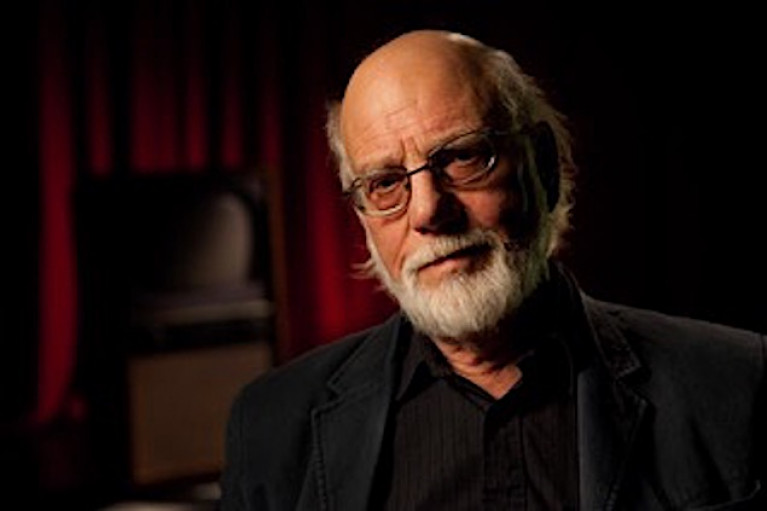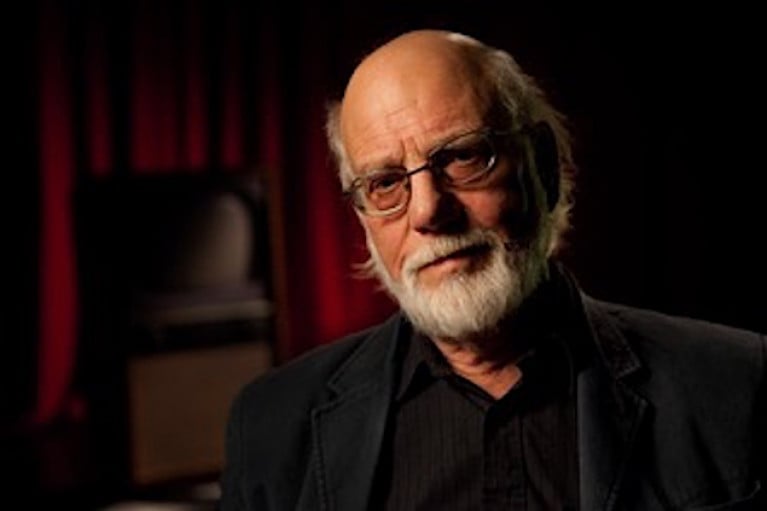Displaying items by tag: Bob Quinn
Atlantean Series Part of Online Film Festival Extended Through February
Galway Film Fleadh has confirmed it is extending its online film festival which includes the Atlantean series of documentaries by film-maker Bob Quinn.
The documentaries explored Quinn’s theory that our maritime links were part of a common “Atlantean” culture extending from the western seaboard of Europe and North Africa and further east.
At the time, his theories were dismissed by academics, but the impact of global warming and climate breakdown on fuelling conflict and enforced migration now lends further weight to his research.
Quinn’s work is among some 11 films selected as part of a programme of early Irish cinema put together by Galway Film Fleadh for the month for January. Such is the demand that is it being extended by a month.
“The Solstice programme has had engagement from over 25 countries and we’ve had demand from schools of both Irish and cinema studies for the films in the programme to remain online for longer,” programme director William Fitzgerald said.
“We’re encouraged by the response, and happy for the filmmakers, to see audiences rediscovering their work,” he said.
Films to rent also include Quinn’s Poitin, Pat Murphy’s early Irish feminist masterwork Anne Devlin, Joe Comerford’s Reefer and the Model, Margo Harkin’s Hush-a-Bye Baby, Cathal Black’s Korea and Lelia Doolan’s documentary on Bernadette Devlin, Bernadette: Notes on a Political Journey.
Full details on Solstice are on www.galwayfilmfleadh.com
Film Maker Bob Quinn & the 'Atlantean' Docu, Part of Galway Film Fleadh’s Solstice Festival
Atlantean conjures up images of sea serpents, mythical peoples living under the sea and it is also the title of a fascinating project which Aosdána member and filmmaker Bob Quinn embarked on in the early 1980s.
The outcome was three documentaries, entitled Atlantean, which are now being screened as part of Galway Film Fleadh’s Solstice festival until January 21st.
Quinn also wrote a book entitled The Atlantean Irish published in 2005 by Lilliput Press which dismissed as myth the popular belief in “Celtic” origins.
He proposed instead that we are part of a common “Atlantean” culture extending from the western seaboard of Europe and North Africa and further east.
At the time, his theories were dismissed by academics, but the impact of global warming and climate breakdown on enforced migration and conflict now lends further weight to his research.
The filmmaker, photographer and author is due to be conferred with an honorary degree by NUI Galway in 2021 for his contribution to the artistic and cultural life of Galway and the Conamara Gaeltacht.
 Kinvara - Bob Quinn explores maritime links between Ireland and North Africa in the Atlantean project
Kinvara - Bob Quinn explores maritime links between Ireland and North Africa in the Atlantean project
He has recently published a work of fiction which explores climate breakdown through the eyes of sailor Flannery, on the river Shannon.
Darwin on the Shannon is set in 2030 when the Arctic ice has finally melted and a tsunami is anticipated.
Writer Christine Dwyer Hickey has described Quinn as “a writer who understands nature in all her beauty and savagery” and describes the book as a “ touching and compelling tale of survival”.
 Film maker Bob Quinn who made three documentaries and wrote a book on the Atlantean project. The films are being shown as part of Galway Film Fleadh's online Solstice festival until January 21st
Film maker Bob Quinn who made three documentaries and wrote a book on the Atlantean project. The films are being shown as part of Galway Film Fleadh's online Solstice festival until January 21st
The Galway Film Fleadh, which he is a founder of, is running the online Solstice event to celebrate Ireland’s first wave of cinema from the late 1970s to the millennium.
Other films available to rent until January 21st include Quinn’s Poitin, Pat Murphy’s early Irish feminist masterwork Anne Devlin, Joe Comerford’s Reefer and the Model, Margo Harkin’s Hush-a-Bye Baby, Cathal Black’s Korea and Lelia Doolan’s documentary on Bernadette Devlin, Bernadette: Notes on a Political Journey.
Full details on Solstice are here
Darwin and the Shannon is available in Charlie Byrne’s bookshop, Galway, and An Ceardlann in An Spidéal, and online here
Bob Quinn spoke to Wavelengths about Atlantean, recalling how it all started...































































